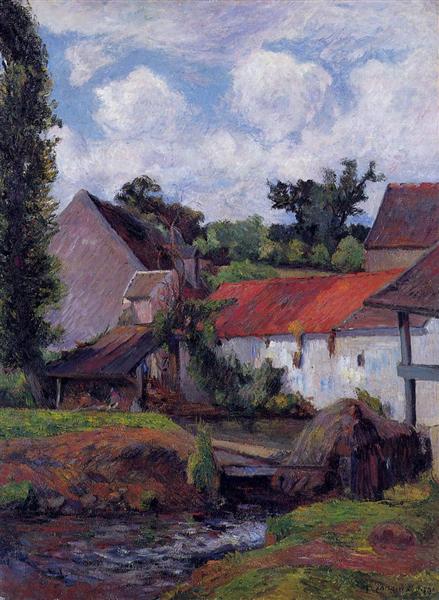描述
保罗·加林(Paul Gauguin)的作品《奥斯尼(Osny)的格兰贾(Granja)》(Granja in Osny In Osny)是艺术家首次作品的一个显着典范,在这里,印象派绘画的回响开始与他的想法交织在一起,这些想法会导致他在后期阶段探索象征性绘画。在这篇文章中,高加(Gauguin)为我们展示了一个宁静而富有的景观,这是法国领域的代表,它融合了一种平静的气氛与颜色管理的氛围,引起了深刻的沉思。
作品的组成揭示了自然元素与农村建筑之间的和谐平衡。在前景中,一个简单的农场受到赞赏,它唤起了奥斯尼地区的乡村生活,奥斯尼地区的乡村生活位于巴黎以北的小镇,在那里,高加(Gauguin)会经过某些创造性的反思时刻。在这项工作中,尘世的颜色占主导地位,柔和的棕色和绿色的色调与农业土壤及其周围环境有联系。颜色的使用是加高方法的特征,他经常应用一个充满活力的调色板,不仅要表达物理现实,还要表达情感或精神本质。
天空以几乎空灵的蓝色绘制,与最黑暗的土地形成鲜明对比,这提供了深厚的空间和光照。白色,海绵状和弥漫性云不是仅仅是大气元素,而是有助于作品的情感负担,可悲的是怀旧。这个宽敞的天空会导致时间反射,创建了一个视觉生态系统,该系统谈论了该领域的时间和生活。
仔细获得现场,尽管人物不是作品的主要方法,但人物可以辨别。这些数字得到了简化的,几乎是示意性的处理,这表明对农村生活的本质而不是个人细节有兴趣。高加因始终使用人类身材的这种简单性,他拒绝学术现实主义,赞成一种强调人与自然之间关系的代表。
“奥斯尼的格兰贾”在高加(Gauguin)的过渡期内注册,在他前往布列塔尼(Brittany)然后去塔希提(Tahiti)之前,他仍在探索乡村生活和乡村的亲密关系,他的作品将获得深刻的象征意义。和颜色。尽管高加因已经开始发展自己的声音,但他的作品中可以认识到巴比州学校的影响力,它可以在他的作品中得到认可,这通常是在日常生活中寻找精神的标志。
在他职业生涯的背景下,“奥斯尼的格兰贾”不仅是法国乡村美景的证词,而且是一部位于艺术家起源的作品,他会冒险超越他那个时代的惯例。这幅画邀请我们反思农村生活的简单性,人与环境之间的关系以及在绘画体验中寻找更大的情感深度。因此,这项工作成为通往仪表视觉宇宙的门户,期待将标志着他们在现代艺术中的道路的创新。
KUADROS ©,墙上的著名油漆。
手工制作的油画,具有专业艺术家的质量和独特的印章 KUADROS ©.
图片复制服务具有满意保证。如果您对绘画的复制品不完全满意,我们将100%退还您的钱。

